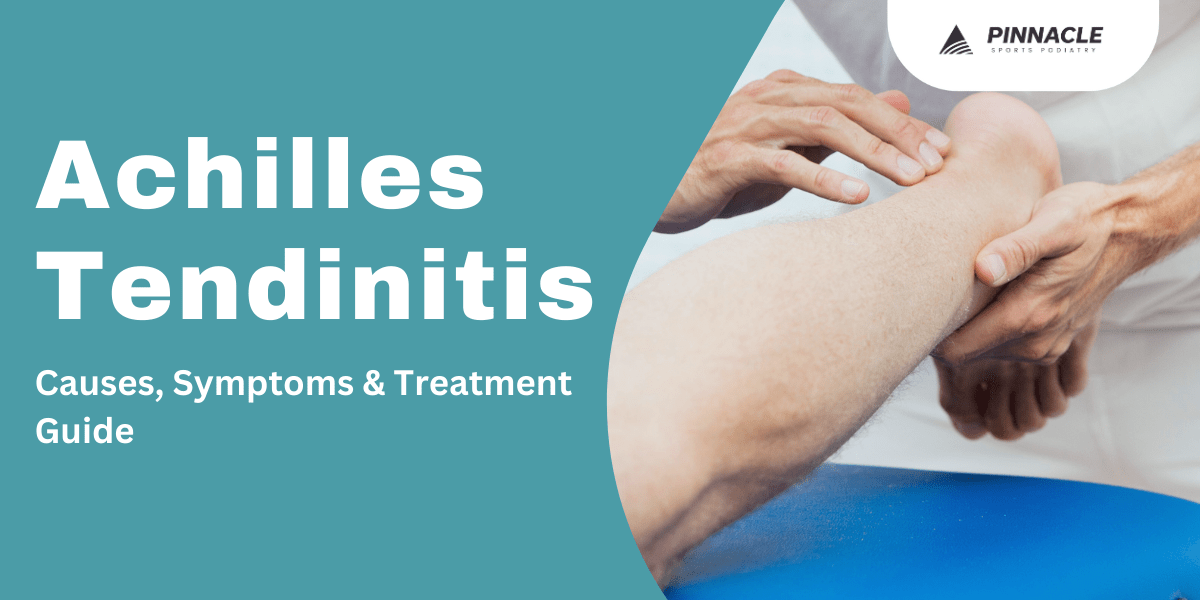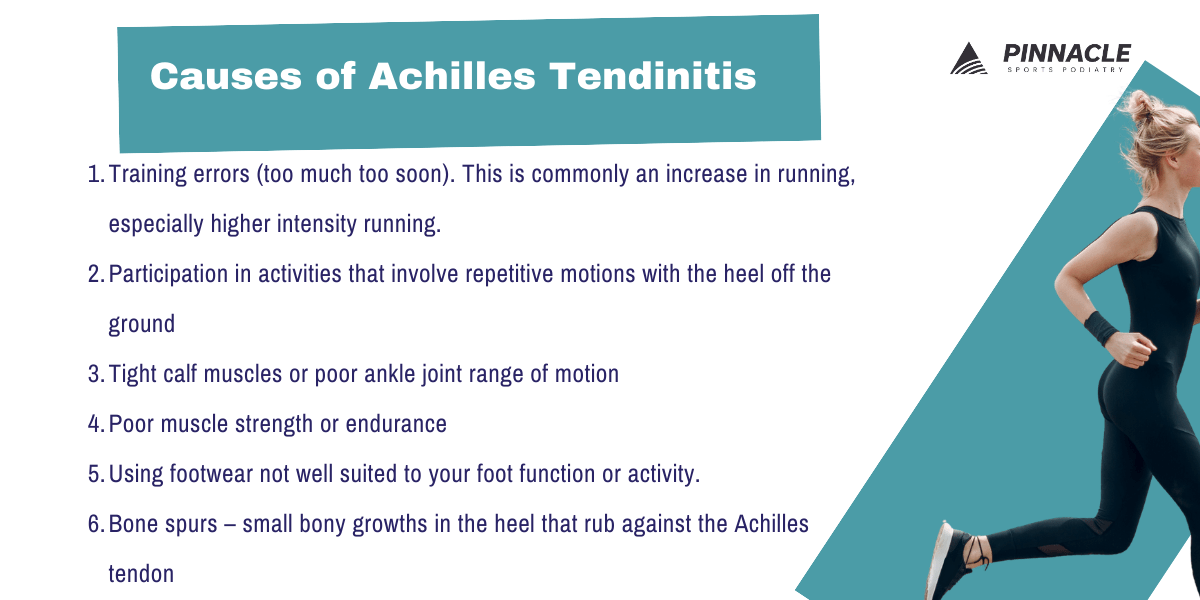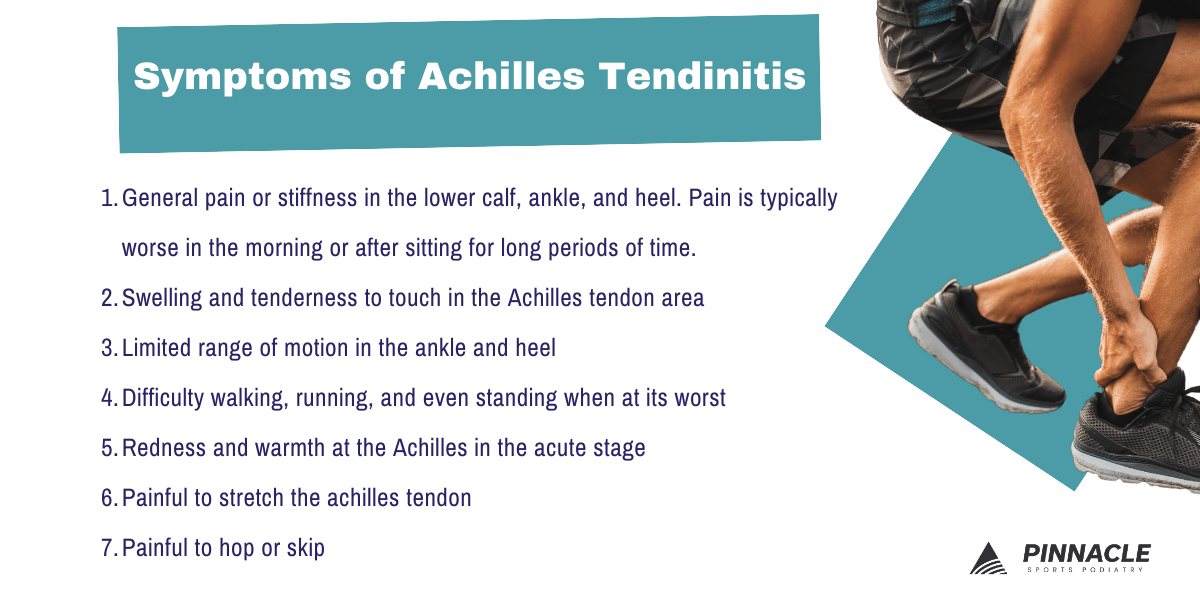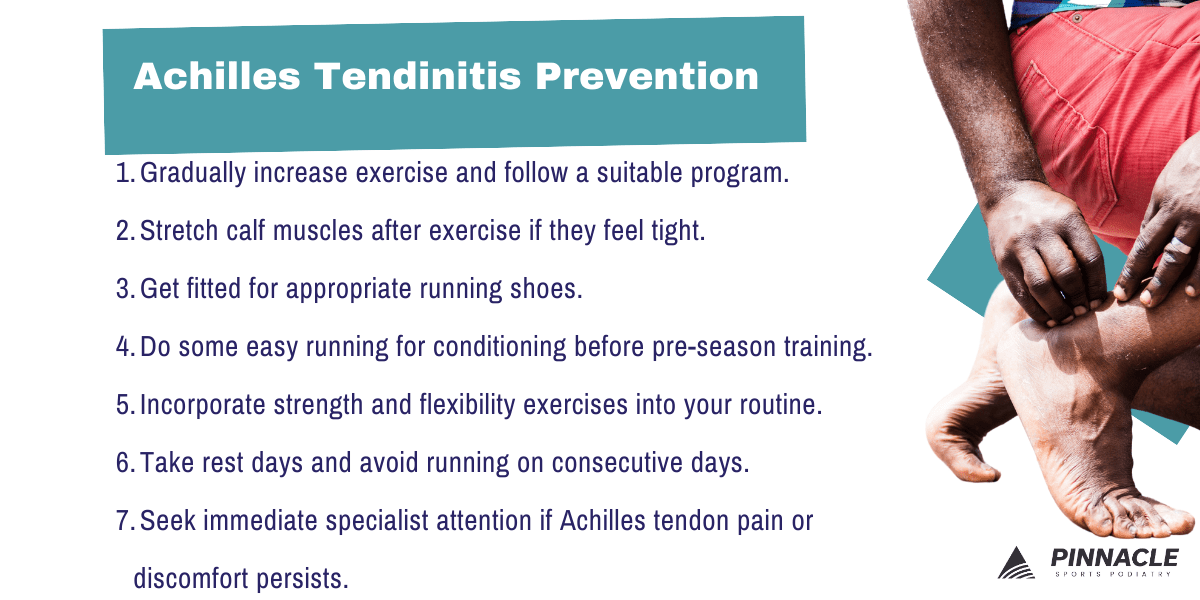
Achilles tendinitis or Achilles tendinopathy is an overuse injury that affects the band of tissue that connects the calf muscle on your lower leg to your heel bone.
For runners, joggers, and walkers, Achilles tendinitis is amongst the most dreaded injuries. Unlike many bone injuries which have a predictable recovery period, Achilles tendinitis injuries can drag out for many months and even years when treated incorrectly.
In this article, we’ll investigate the cause, symptoms, treatment, and prevention options available in a bid to mitigate the number of people affected by Achilles tendinitis each year. If you are already suffering from any of the symptoms outlined below, it is strongly recommended that you seek treatment.
Causes of Achilles Tendinitis
Achilles tendinitis is caused by repetitive stress to the Achilles tendon and is classified as an ‘overuse’ injury that typically affects runners and those participating in sports involving running or jumping. For some, walking can be enough to overload the Achilles tendon. Simply put, Achilles tendonitis occurs when the tendon is not strong enough to withstand a given exercise load.

Causes of Achilles tendinitis injuries may include:
• Training errors (too much too soon). This is commonly an increase in running, especially higher intensity running.
• Participation in activities that involve repetitive motions with the heel off the ground
• Tight calf muscles or poor ankle joint range of motion
• Poor muscle strength or endurance
• Using footwear not well suited to your foot function or activity.
• Bone spurs – small bony growths in the heel that rub against the Achilles tendon
• Previous Achilles tendon injuries
Symptoms of Achilles Tendinitis
Achilles tendinitis symptoms can be either gradual onset or acute. Initially, it is often quite painful, warm and swollen, then it can settle and become more of a grumbly, with low grade pain.
If the inciting load is not reduced, Achilles tendinitis injuries can become more acute and cause a significant loss of mobility, swelling, and pain when walking.
Common symptoms reported by patients diagnosed with Achilles tendinitis include:

• General pain or stiffness in the lower calf, ankle, and heel. Pain is typically worse in the morning or after sitting for long periods of time.
• Swelling and tenderness to touch in the Achilles tendon area
• Limited range of motion in the ankle and heel
• Difficulty walking, running, and even standing when at its worst
• Redness and warmth at the Achilles in the acute stage
• Painful to stretch the achilles tendon
• Painful to hop or skip
Is There a Difference Between Achilles Tendinitis and Achilles Tendinopathy?
Achilles tendinitis and Achilles tendinopathy are terms that are used interchangeably to describe pain and inflammation to the Achilles tendon.
Tendinitis is usually characterised by acute inflammation to the tendon, while tendinopathy is a more general term that describes tendon pathology. Tendon pathology could be either acute overload and swelling (tendinitis) or repeated overload with absence of swelling (tendinosis). Many who have had Achilles pain for over 6 weeks will be dealing with a combination of tendinitis and tendinosis concurrently; this is where we call the condition an Achilles tendinopathy.
Achilles Tendinitis Treatment Options
Depending on the severity of your injury, there are a number of surgical and non-surgical treatment options for Achilles tendinitis. A trained specialist will be able to assess your condition and provide advice that is tailored towards your unique situation.
Some of the most common surgical and non-surgical treatments include:
Non-Surgical Treatments
• Rest
• Ice
• Anti-inflammatory creams and tablets
• Night wrap
• Strengthening
• Stretching
• Change in footwear to have more heel elevation or support
• Progressive overload via rehab
• Progressive overload via back to run plan
• Training advice
• Orthotics
• Heel lifts
• Extracorporeal shock wave therapy (ESWT)
• Platelet-rich plasma (PRP) therapy
• Corticosteroid injections
• Prolotherapy
• Dry needling
Surgical Treatments
• Debridement and repair
• Myofascial lengthening
Achilles Tendinitis Prevention
Achilles tendinitis is an overuse injury that is induced by repetitive stress to the band of tissue that connects the calf muscle to your heel bone. To prevent Achilles tendinitis, some of the most important preventative steps include:

• Gradually increase exercise load – for runners, follow a program appropriate for your level of experience and fitness. Where possible, get a coaches input for best individualisation and periodisation.
• Stretch the calf muscles after exercise if they feel tight.
• Get fitting for running shoes at a running specialty store where possible.
• For team sports, consider doing some easy running for conditioning before pre-season training begins.
• Incorporate strength and flexibility exercises into your routine
• Take rest days and don’t run on consecutive days when starting out a running program.
• If pain or discomfort in the Achilles tendon persists, see a specialist immediately so that you know what you are dealing with and can have a more individualised treatment plan.
How Long Do Achilles Tendinitis Injuries Stick Around?
Achilles tendinitis injuries can be one of the most frustrating injuries for runners and sports people. Due to the nature of the injury, there is no set time frame for recovery and a lot will be determined by the severity of the injury, as well as the injury history of the patient.
In some cases, you may be back on your feet in a matter of a few weeks or a month with the right treatment, proper rest, ice, and physical therapy. In other cases, Achilles tendinitis injuries can take more than six-months to heal and may require more aggressive treatments such as corticosteroid injections or surgery.
Final Thoughts
Achilles injuries are not something to be taken lightly. If you are experiencing any pain or discomfort in your Achilles, we recommend seeking specialist treatment and diagnosis as soon as possible.
If you’re looking for podiatrists near me, it’s important to know that Achilles injuries such as tendinitis that go untreated are far more likely to become persistent and debilitating, which can result in longer recovery timeframes, so it’s important to seek treatment as soon as possible.